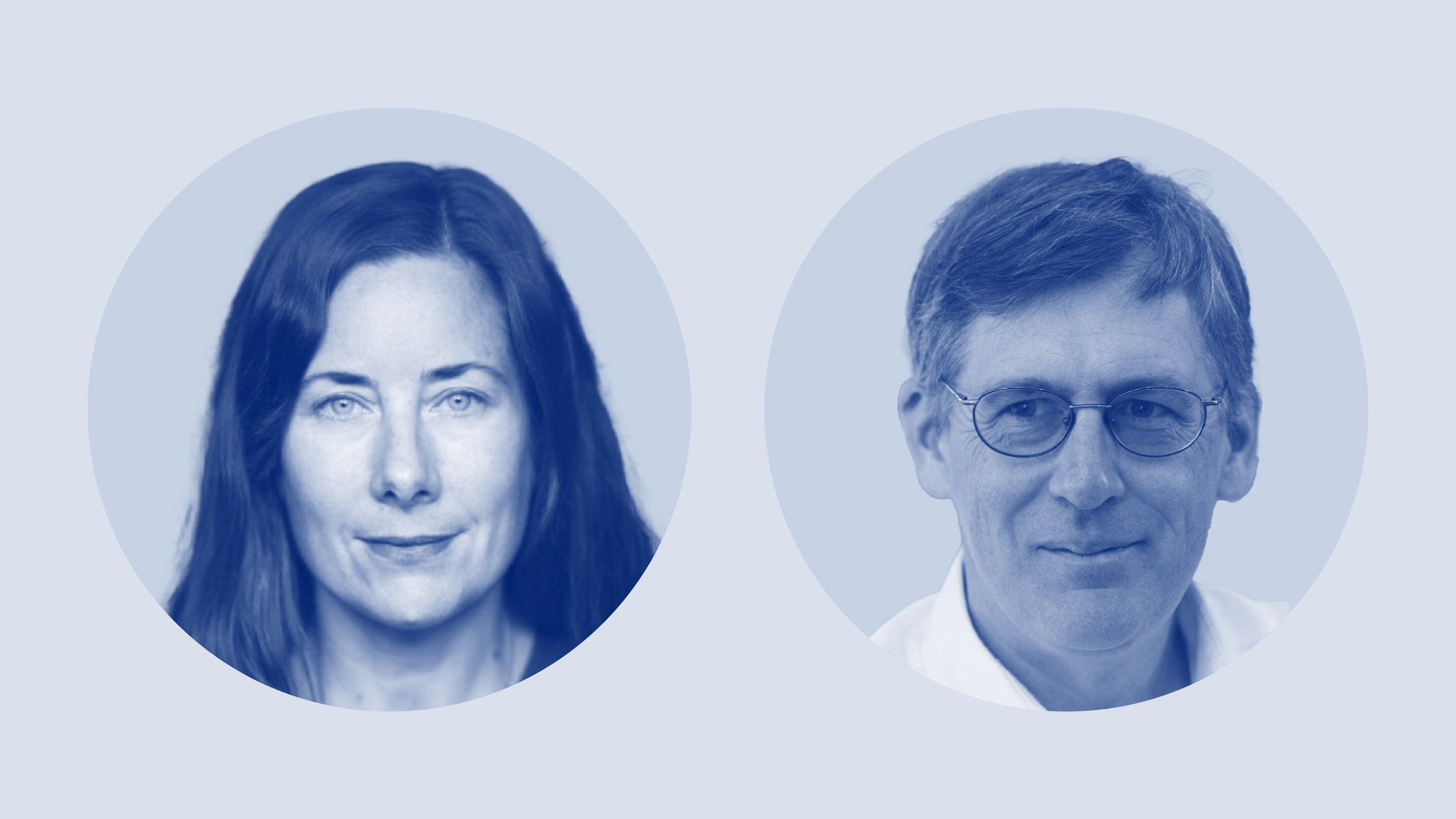UC Berkeley Historian, Documentary Filmmaker Are 2024 Guggenheim Fellows
John Connelly and Jennifer Redfearn are among 188 new "culture-creators" across the U.S. and Canada whose awards will fund independent work.

Relief. That was UC Berkeley Professor John Connelly's first reaction to learning he'd been named one of 188 new Guggenheim Fellows — “culture-creators,” in the words of the John Simon Guggenheim Memorial Foundation, recently chosen from dozens of scholarly disciplines, artistic fields, academic institutions and areas of the U.S. and Canada.
Connelly, who is a historian, and another campus awardee, Graduate School of Journalism Professor Jennifer Redfearn, a documentary filmmaker, each will receive a monetary stipend to pursue independent work at the highest level under “the freest possible conditions,” according to the foundation.
That feeling of relief, said Connelly, "(comes from) knowing that one has a bit more time to think and write in peace. I am currently involved in a very extensive project on German history ..., so time is the crucial basic resource."
The 2024 fellowships, announced April 11, encourage both intellectual and physical freedom.
"With more time," he added, "one is also challenged to take risks, to go down paths, ask questions, travel places that one otherwise never would have considered in the first place. I hope the fellowship will make me more creative, adventurous. ... though my project is on Germany, it occurs to me I might visit Amsterdam, Prague and Warsaw, listen to perspectives of neighbors, investigate their archives."
Redfearn said her fellowship will support new forms of visual storytelling, her own documentary filmmaking and work with journalism students to report on the most pressing challenges to humanity. She currently is researching how scientists are using AI and the latest technology for conservation efforts, to decode animal communication and behavior.
“I’m grateful for and energized by this recognition,” she said. “Merging immersive visual storytelling and ethical AI opens up thrilling new possibilities for storytelling and audience engagement. I’m inspired to continue finding imaginative ways to engage the public in the critical issues of our time.”
For more than 15 years, Redfearn has produced independent documentaries, multimedia and nonfiction content for outlets such as PBS, HBO, National Geographic, CNN, Discovery and MediaStorm. Her films have been called “engrossing,” “poignant,” “beautifully cinematic” and “intensely human.”
She directed and co-produced the 2011 Academy Award-nominated film, Sun Come Up, about a remote South Pacific island community forced to relocate due to rising seas, and Tocando la Luz (Touch the Light), about three blind women from Havana, Cuba. Her recent feature documentary, the Emmy nominee Apart, follows three mothers returning home from prison and rebuilding their lives after years of separation from their children.
Redfearn was a field director, consulting producer and additional cameraperson on the 2015 SXSW award-winning film, Landfill Harmonic, about a Paraguayan youth orchestra that plays classical music with instruments made from recycled trash.
Connelly is Berkeley’s Sidney Hellman Ehrman Professor of History and director of the Institute for East European, Eurasian and Slavic Studies. His scholarship focuses on the history of East and Central Europe, comparative education and the history of nationalism.
He has had a particular focus on problems of religious and ethnic identity in multinational space. Among his publications are the books Captive University: The Sovietization of East German, Czech and Polish Higher Education, 1945-1956 (2000), From Enemy to Brother: The Revolution in Catholic Teaching on the Jews, 1933-1965 (2012), and From Peoples into Nations: A History of Eastern Europe (2020).
Guggenheim Foundation President Edward Hirsch, an award-winning poet, said in a news release that all the new fellows were chosen for their interest in tackling the "profound existential challenges" that humanity faces today.
“The Guggenheim Fellowship is a life-changing recognition … a celebrated investment into the lives and careers of distinguished artists, scholars, scientists, writers and other cultural visionaries who are meeting these challenges head-on and generating new possibilities and pathways across the broader culture as they do so,” he said.
Collectively, the Berkeley faculty receives many honors, and campus scholars across diverse disciplines, including history and journalism, are no strangers to Guggenheims and other accolades. But Connelly said such honors "generally don’t come so frequently in one's individual life."
So his fellowship, he added, is "also a time to be grateful for the people in decades past who have made this opportunity possible: teachers, colleagues, students, and perhaps also a time for more than the ordinary bottle of wine, or maybe even champagne, in good company."
Andrea Lampros from the Graduate School of Journalism and Kenny Ma from Berkeley Social Sciences contributed to this report.
